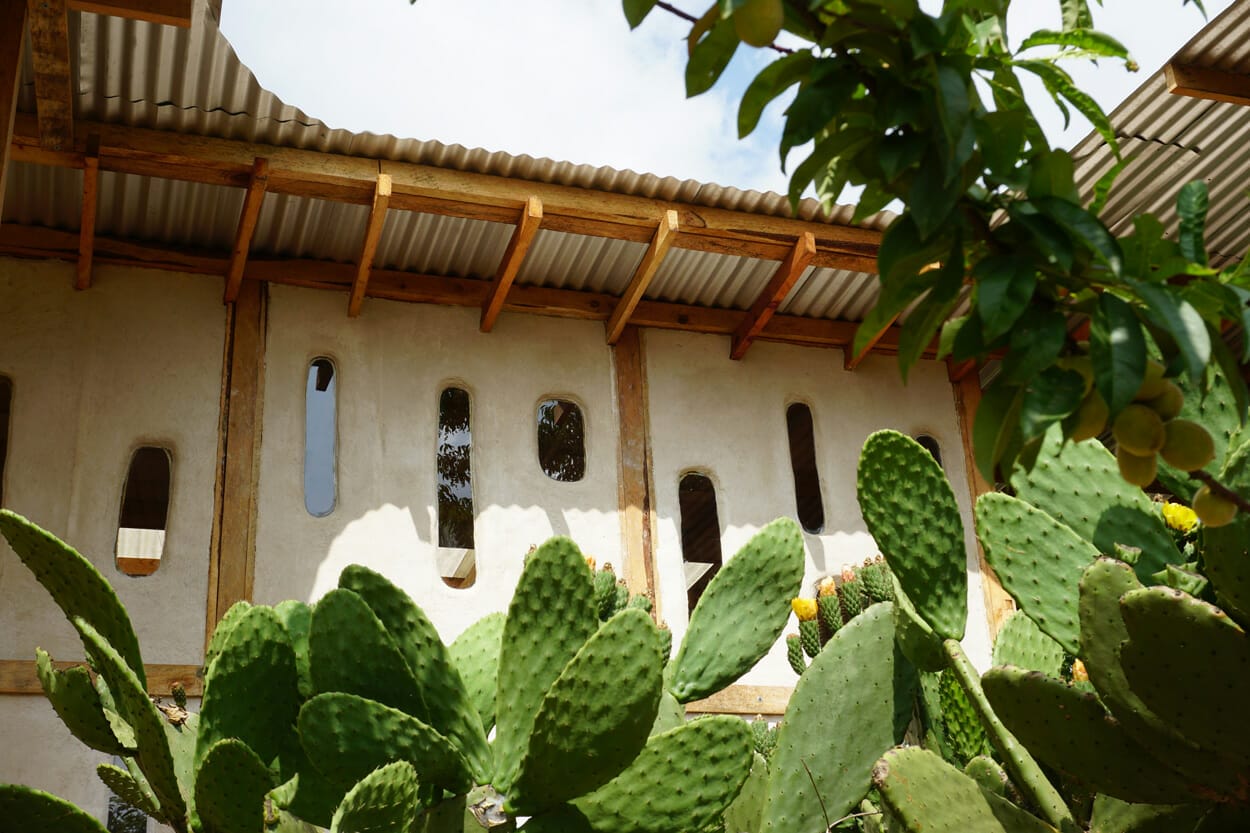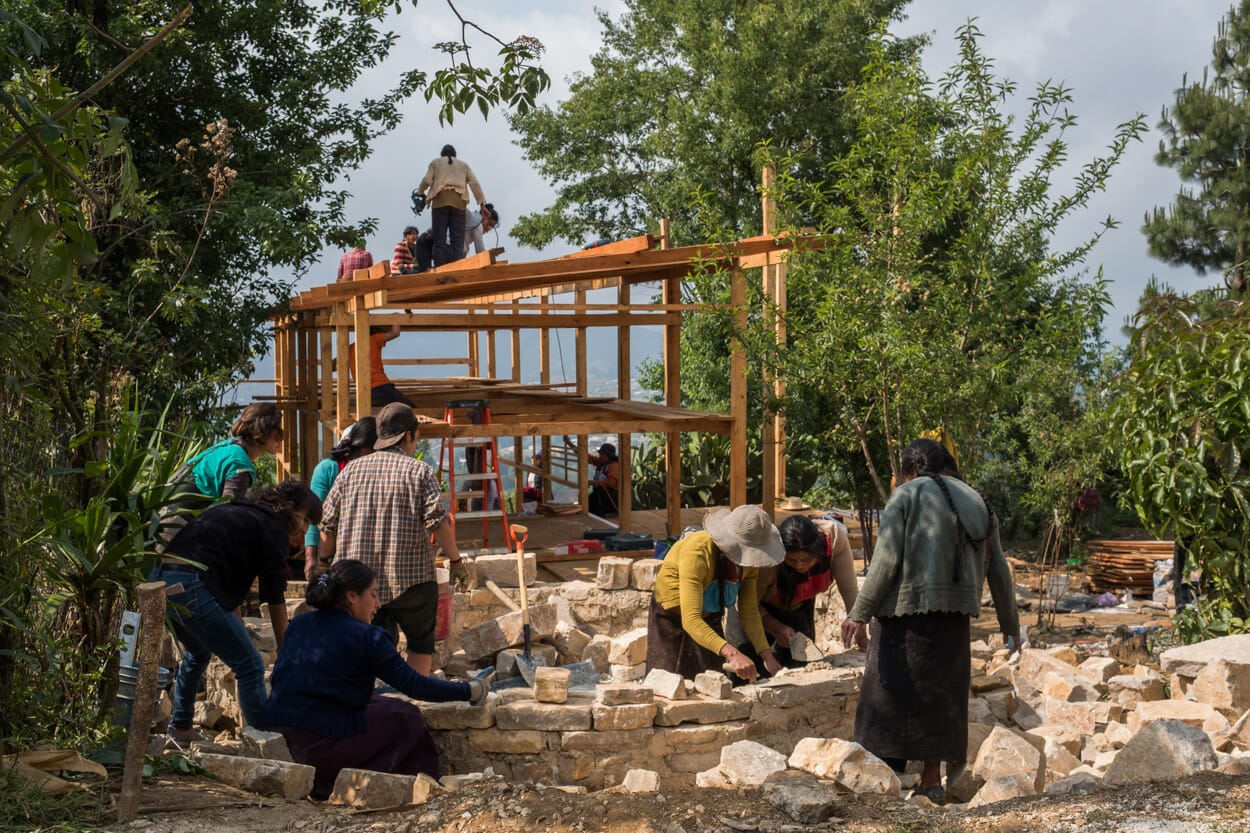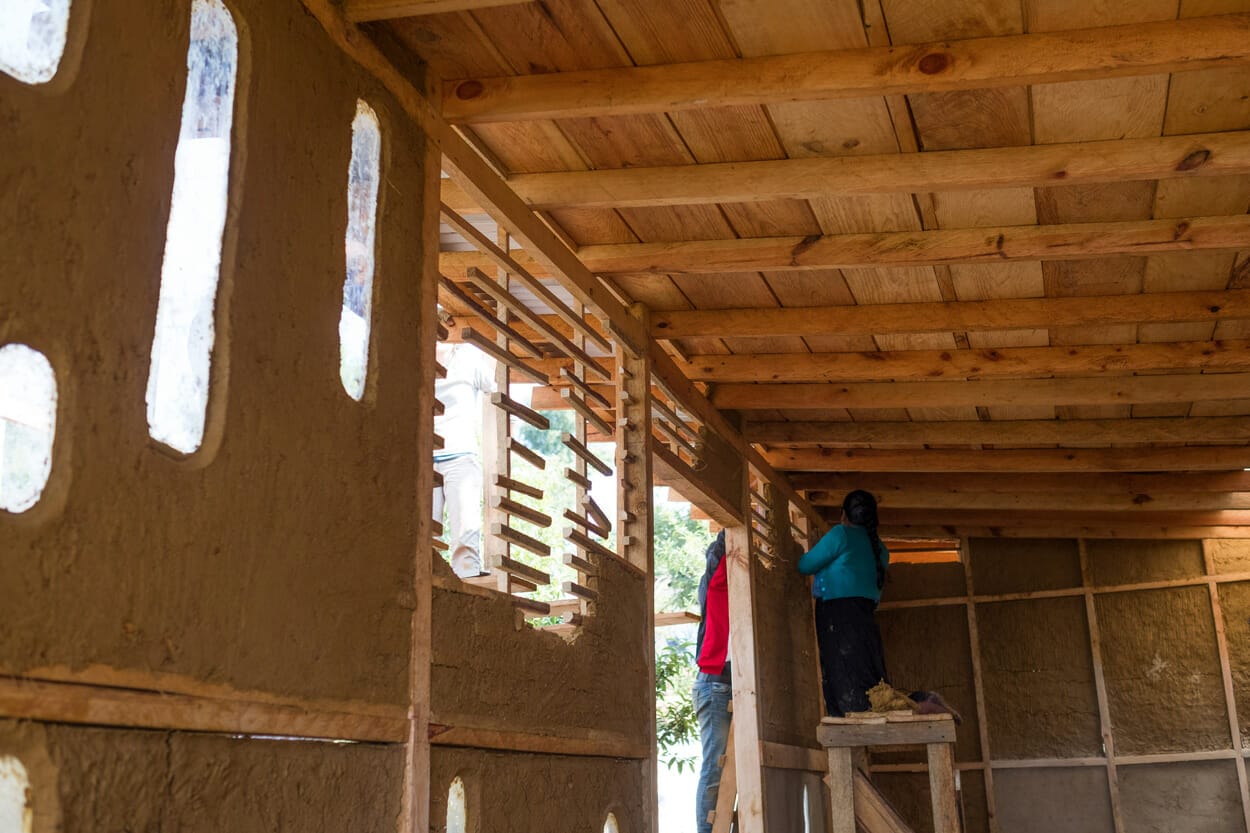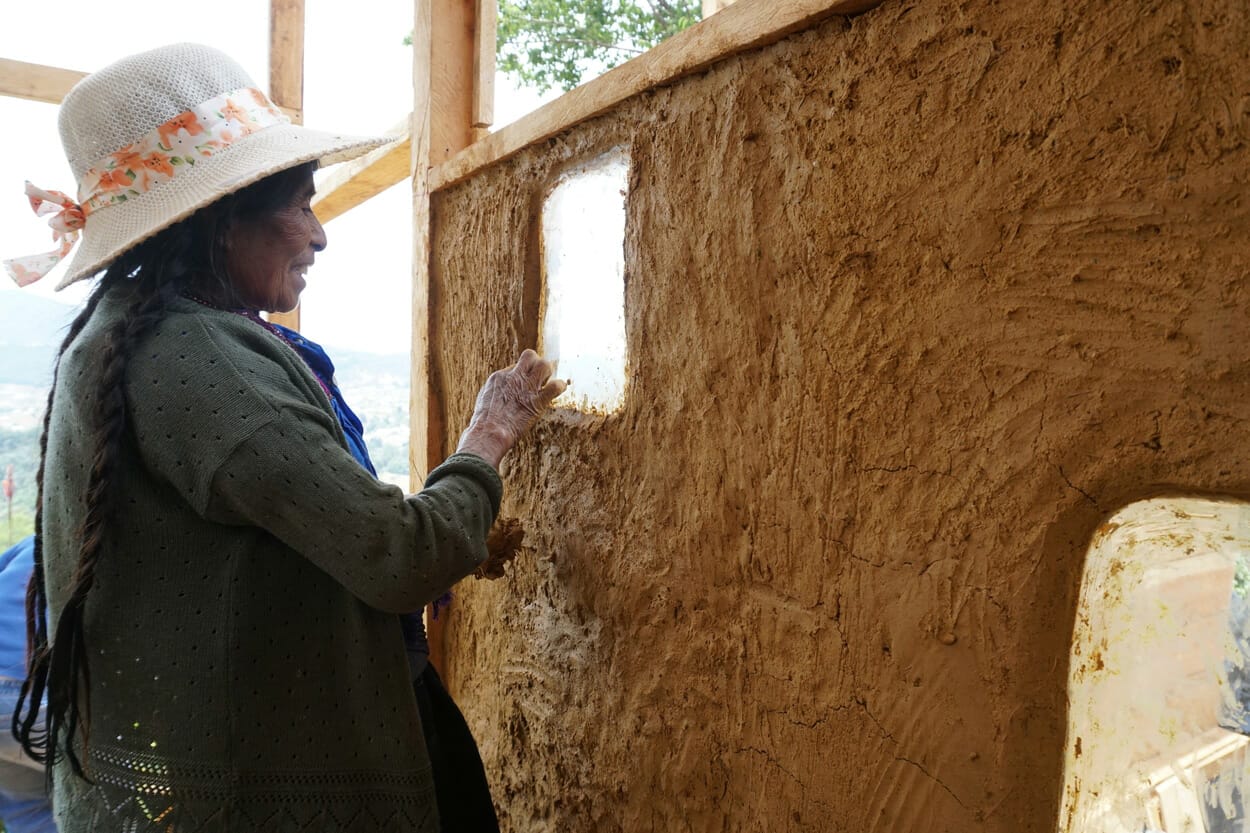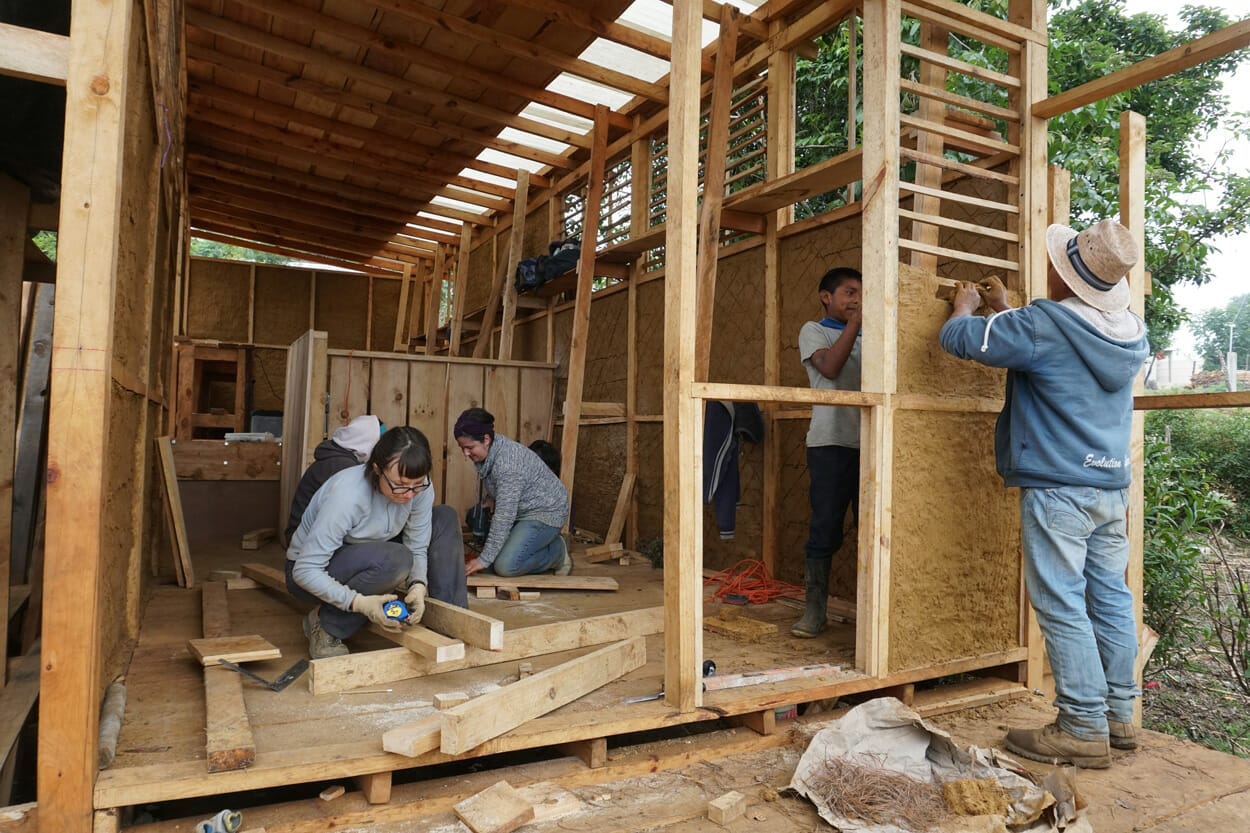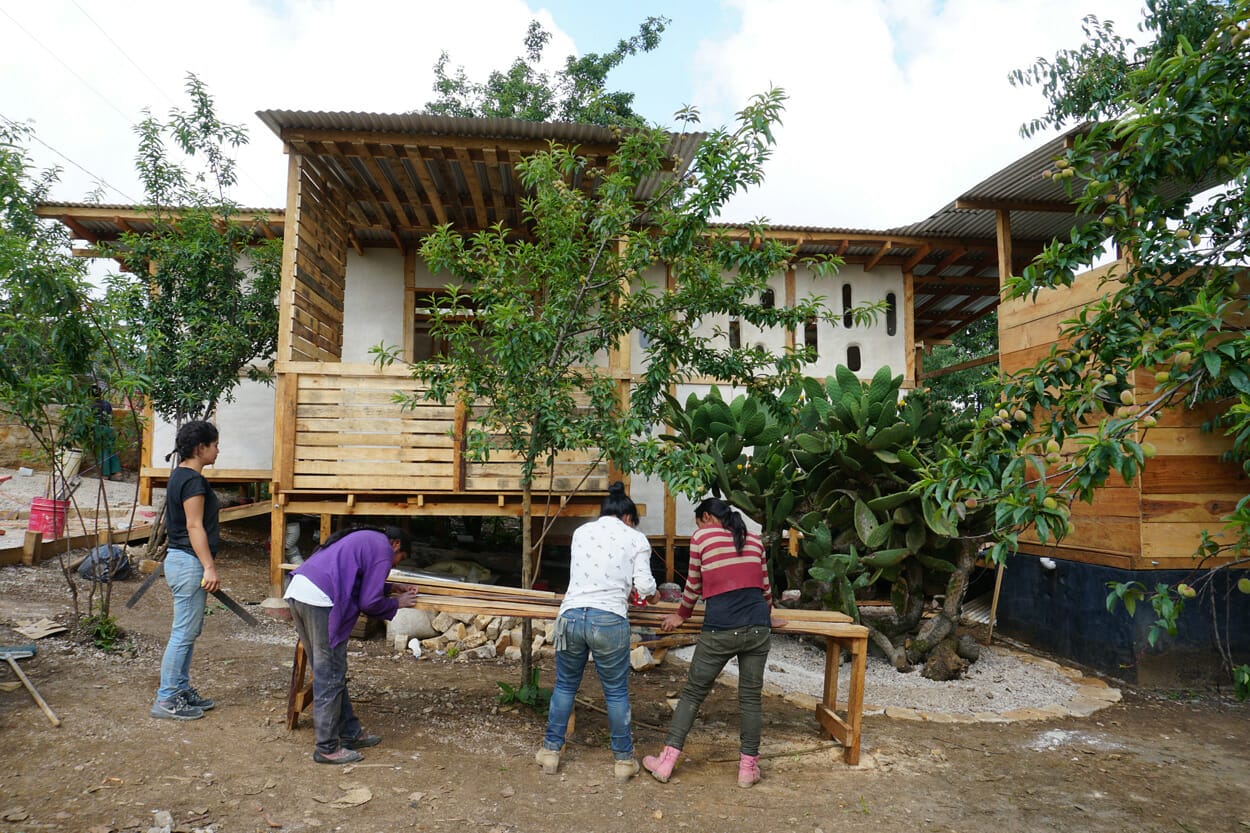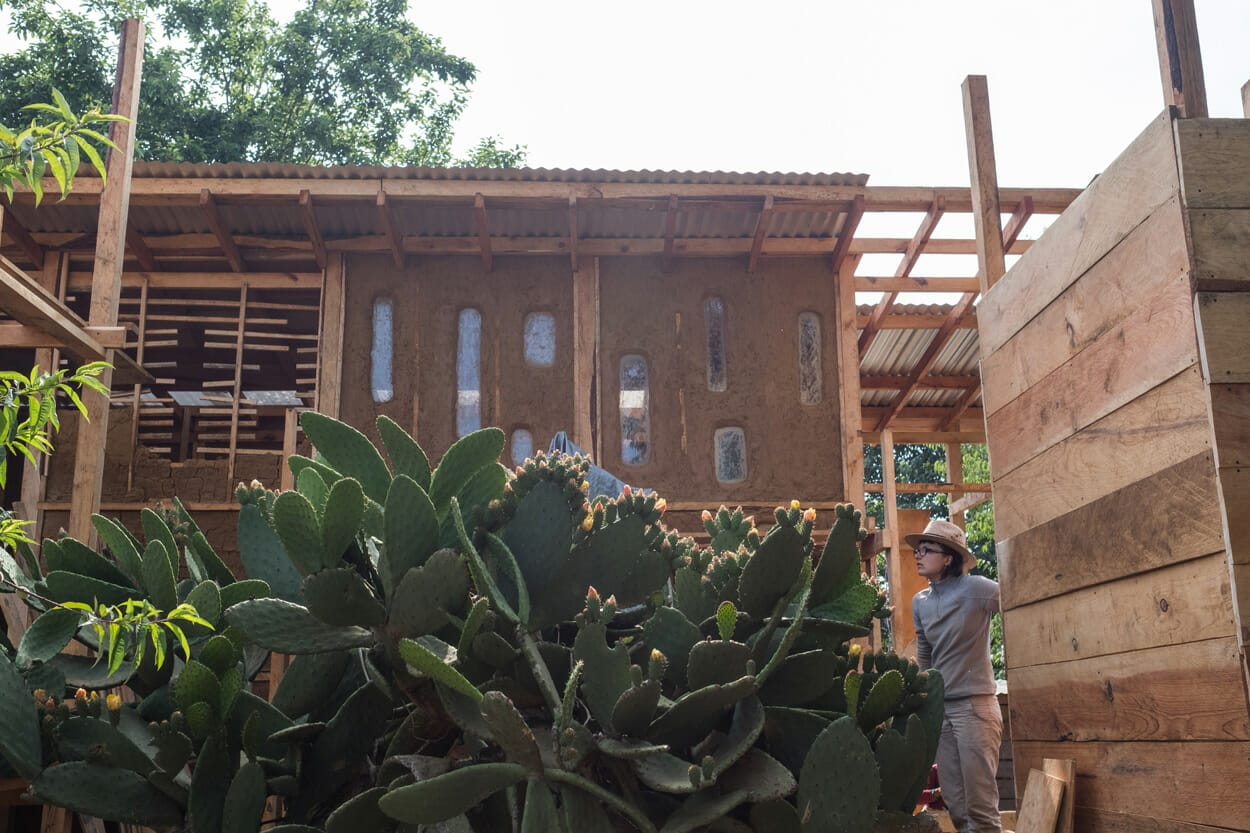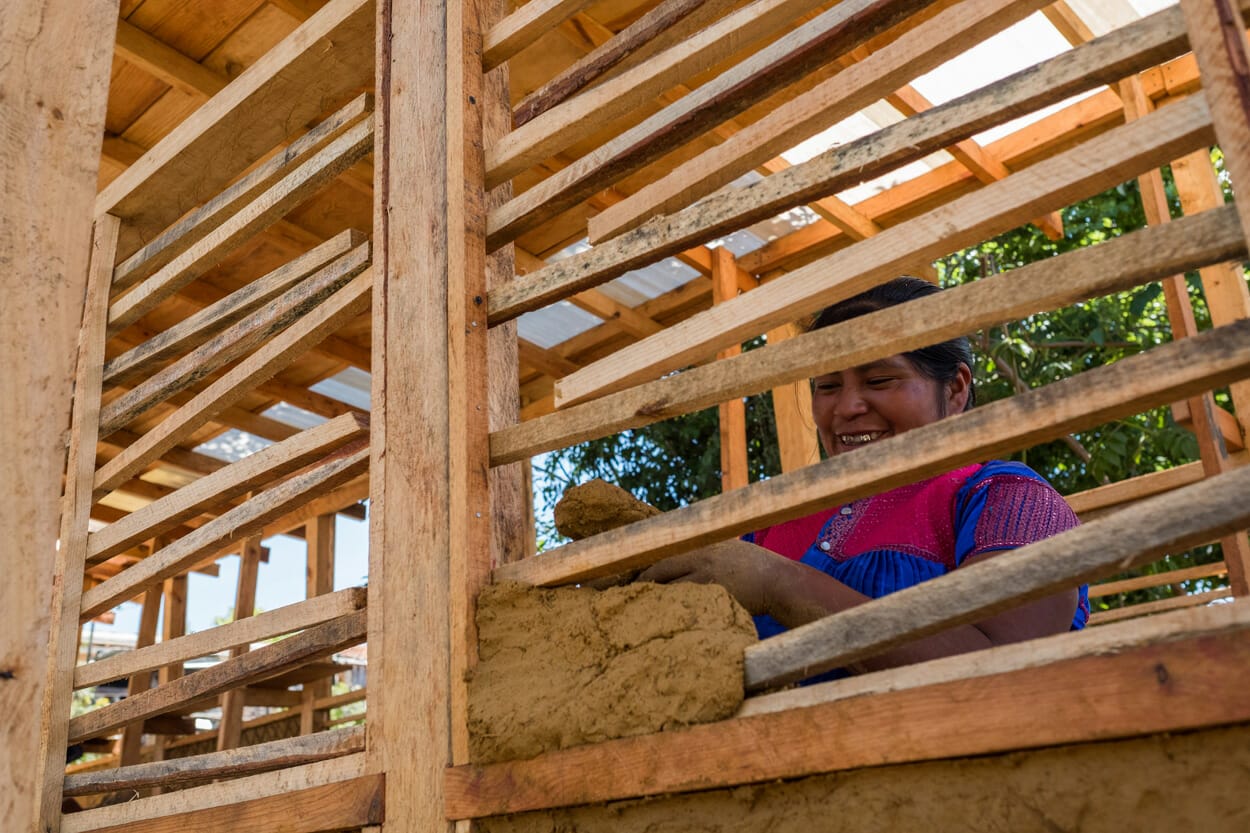By using the participatory methodology of Programa VACA A.C. artisan women are part of the design process of the spaces and necessary equipment for the new workshop for the development of traditional wool dye in Bautista Chico, Chamula in Chiapas Mexico.
The construction was carried out with the women organization part of El Camino de los Altos A.C. that develops contemporary textile products with traditional techniques and shared design, who were joined by volunteers and the teaching team of VACA Program to achieve the goal under the methodology of assisted self-construction and designing from the field.
At Programa VACA we use beauty as an essential part of the spaces we build, showing also that with participative construction aesthetic and functional results can be achieved at a lower cost. In this project the cost per square meter was 1, 667.00 Mexican pesos (83 USD) including feed costs for the participating families and the team.
The constructive technique that was implemented is the improved Bahareque, which is a constructive method based on mixing soil with natural fibers and a wood framework in a supporting structure of isolated piles; the Bahareque is common in the territory but has fallen into disuse for industrialized construction. Through minimal modification of the constructive aspects of the technique and the inclusion of traditional stucco and sheep hair plasters, we seek to give the walls a better isolation from the rain and less need of maintenance.
The building is organized in the open spaces that surround the existing plants and trees, this helps to open patios and views for adequate lighting and ventilation. The waste glass lattice, flushed against the bahareque structure in the south façade, makes the workshop a well-lighted space that also protects the privacy of the women working inside. In addition, its design seeks to direct the users view towards contemplation with the intention of stimulating their creative process.
The building is divided according to the specific activities for the traditional work of spinning and dyeing the wool: wet and dry cleaning spaces, storage, sorting and dyeing. It was also decided to provide the building with terraces, a dry toilet, gardens and a rainwater harvest cistern to serve as an example of sustainable technologies of easy replicability in domestic spaces.
The process of wool dyeing needs a lot of water: a 7, 000-liter uncovered stone cistern was built that collects the water through the continuous roof that covers all the workshop spaces, unifying the internal route and protecting the users from the rain.
This cistern is also used as a pool for the children in the community. We believe that the community spaces should allow diversity of uses and provide recreational spaces for full human development.
The double drying chamber bathroom has a panoramic window with the intention of generating a space with aesthetic force to encourage the appropriation and improvement of these dry technologies for the management of human waste. It is our conviction that through the construction of pleasant spaces the adoption of these technologies is faster.
We hope that through the construction of this workshop the collective work community bonds are strengthened, that replicable improvements will be adopted in the domestic spaces and that these experimental design ideas may serve as affordable options for the most vulnerable groups in the territory. Thanks to the fact that the women were active participants constructing the buildings, we hope that the maintenance and repair that will be needed may be done by self-management. We believe that access to knowledge reinforces the autonomy of indigenous women and we hope that this new equipment will result in economic dynamics that allow regional development and improvement in the quality of life of the Chamula families.
- Architect: Programa VACA


